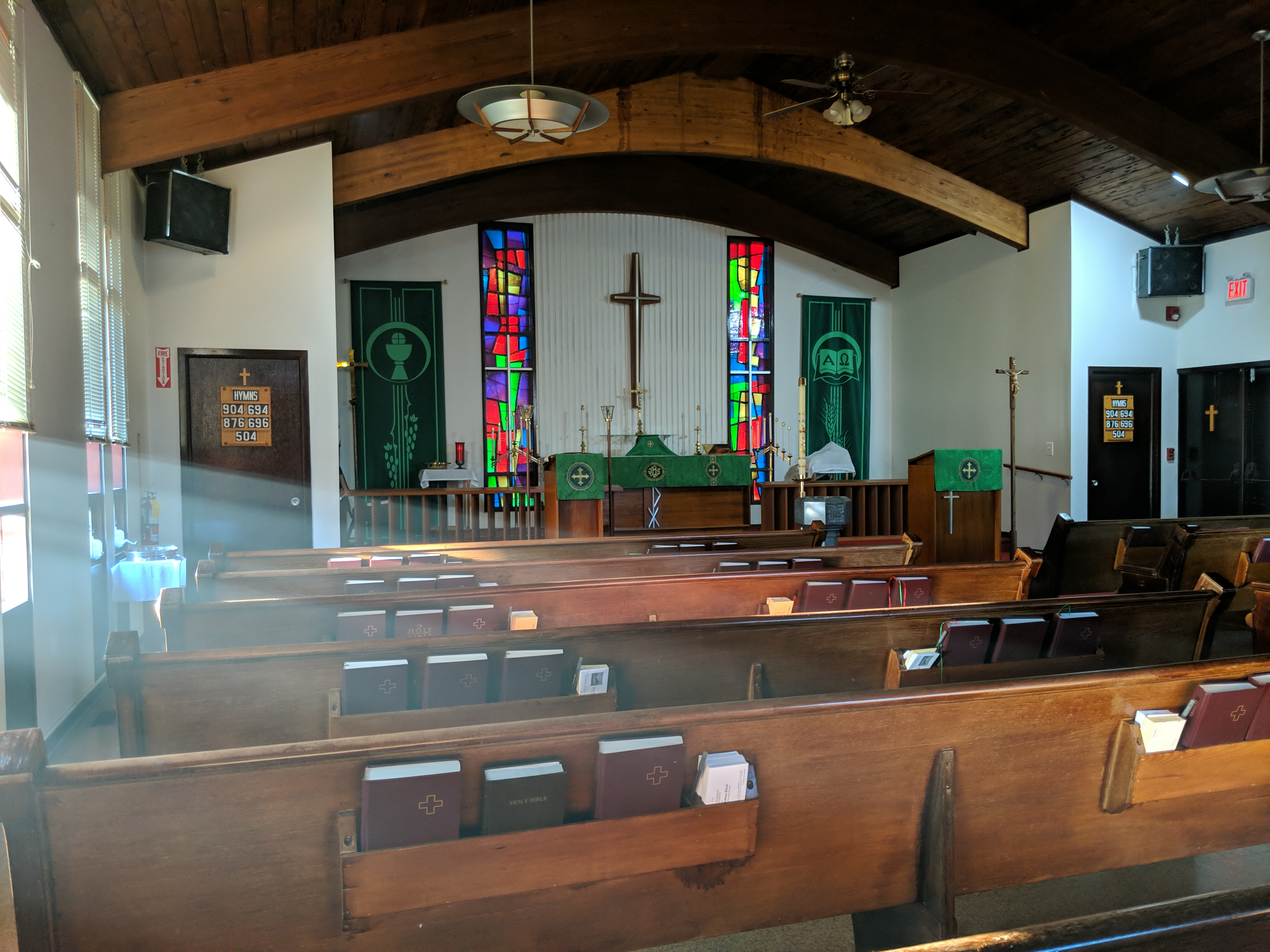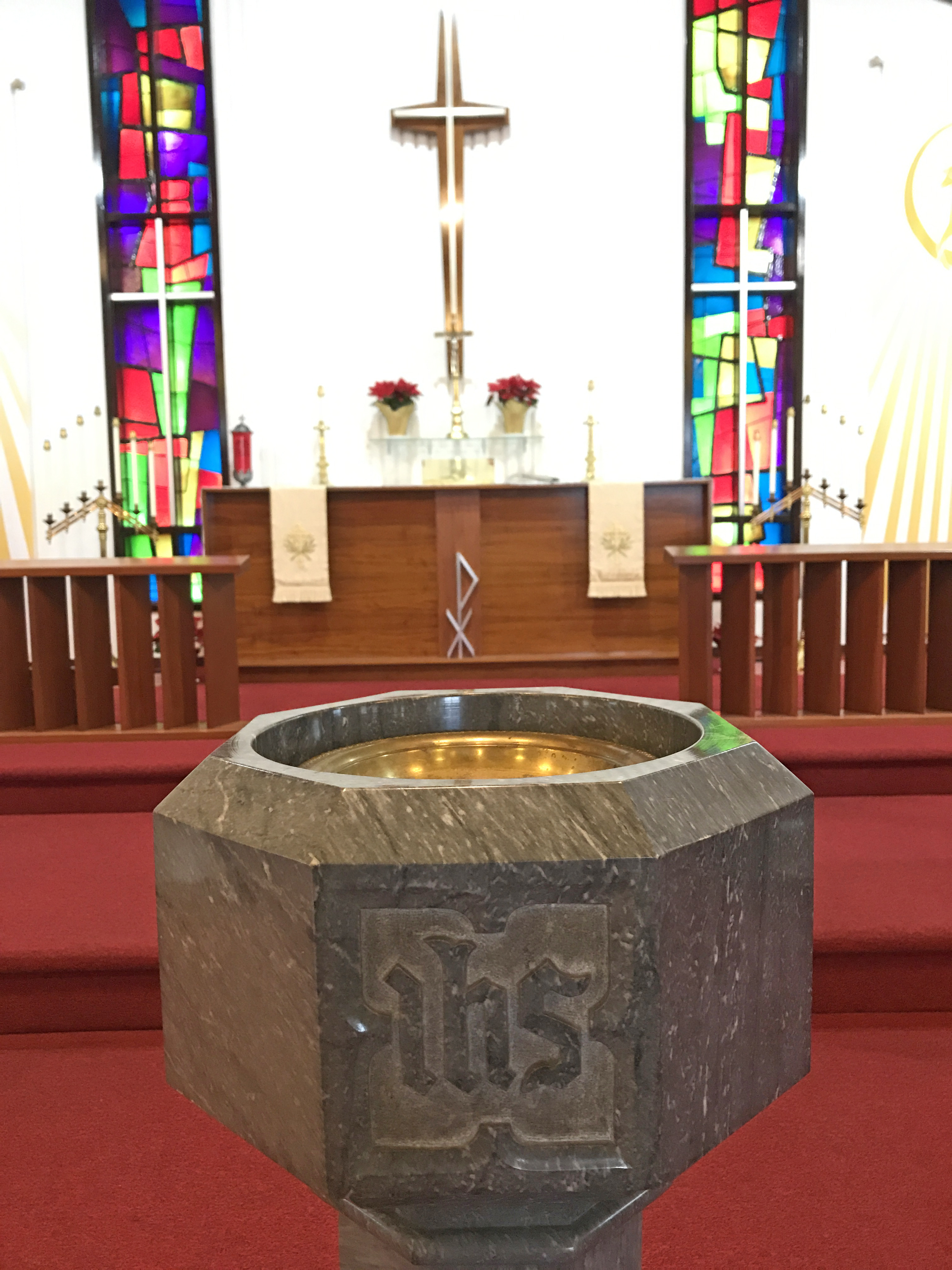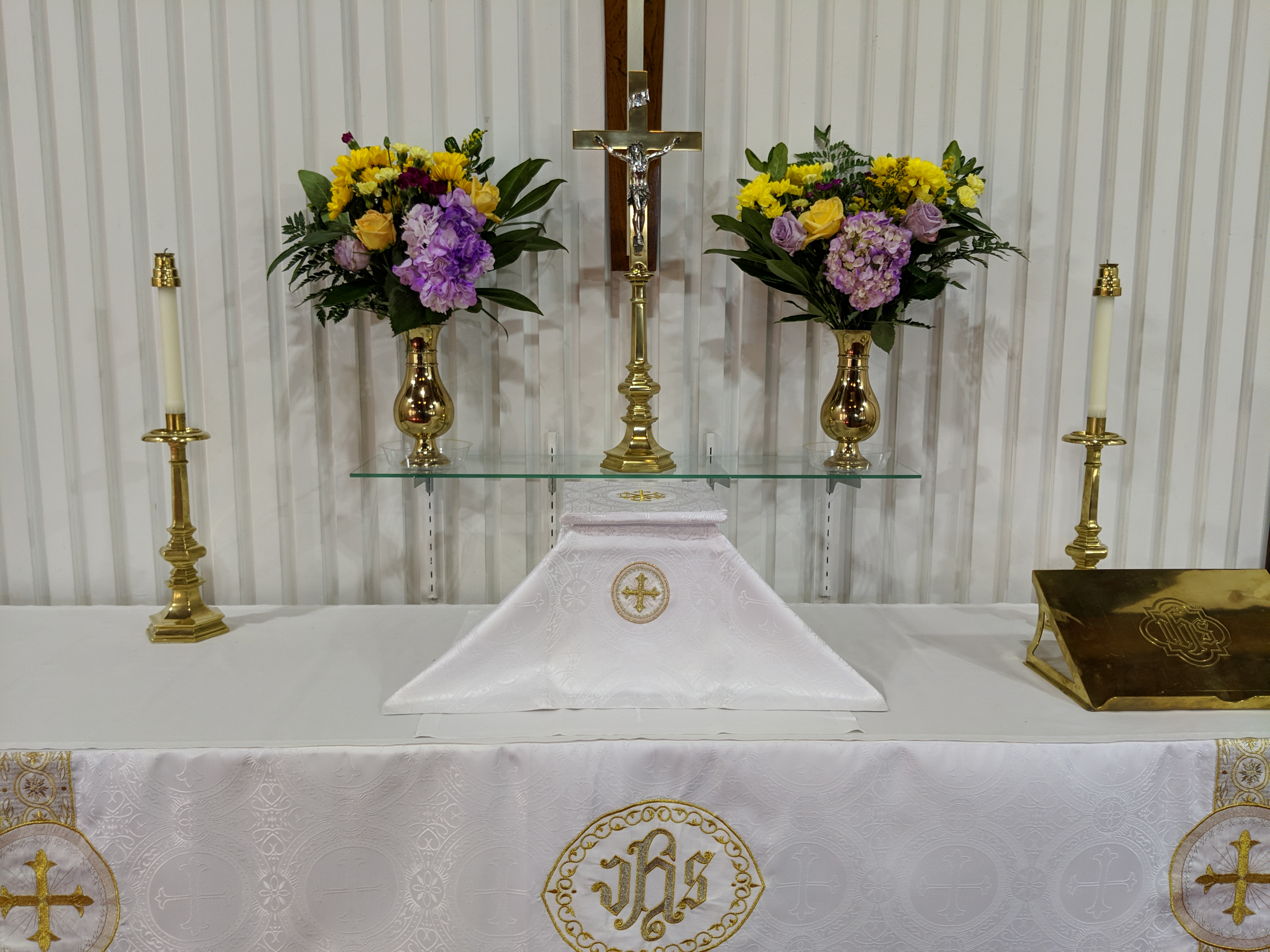The Twentieth Sunday after Trinity – Sunday 22 October A✠D 2023
✠ Psalmody: Psalm 48:1, 9–11;145:15–16;130:1–2a
✠ Lection: Isaiah 54:17b—55:11;Ephesians 5:15–21;Matthew 22:1–14
In the Name of the Father and of the ✠ Son and of the Holy Spirit. Amen.
The Lord Jesus spoke a parable about the kingdom of heaven to the chief priests and Pharisees. In it, He teaches about how this marvelous kingdom comes and how it will come in its full, unbridled measure on the Last Day. Tucked into the parable are truths hidden from eyes that cannot see, but revealed for the comfort and assurance to those of us whom the Holy Spirit has given the gift of faith.
To consider the parable of the King’s marriage feast for His Beloved Son to be one of which we as God’s children may lay hold with great joy, we ponder upon what the Scriptures teach us of the future, the eternal future awaiting us all. Let us ponder it from God’s perspective for as much as He has given us in His revealed and Holy Word. Regardless if one believes it or not, there is only one true God, a just and mighty King, rich in grace and mercy, Who is all-knowing, not only in that He has full knowledge of everything that is happening everywhere right now, even within your own mind, heart, and body, but that He also knows everything that will ever happen. This is called His eternal foreknowledge. He knows all things that have come to pass, all that is now happening, and He foreknows all that is yet to be. He knew when and where you’d be born and what your parents would name you. He knew whether you would be baptized and become Christian, as He knew the same about your grandparents, and as He knows for your grandchildren whether they exist yet or not. In knowing all that will take place in this world, both good and evil, He uses it all to accomplish His good purposes, for we know that all things work together for good to those who love God, to those who are the called according to His purpose. If a wicked tyrant or a demon possessed such foreknowledge, we would expect all kinds of chaos to drive us to ruin, but knowing that it is our merciful Father in heaven alone Who foreknows all things, we can hope and expect that all that comes to pass will be for the good of those who call Him their dear Father.
The Scriptures testify to God’s foreknowledge: Are not two sparrows sold for a copper coin? And not one of them falls to the ground apart from your Father’s will. – Matthew 10(:29); Your eyes saw my substance, being yet unformed. And in Your book they all were written, The days fashioned for me, When as yet there were none of them. – Psalm 139(:16); and “But I know your dwelling place,” says the LORD, “Your going out and your coming in, And your rage against Me.” – Isaiah 37(:28) The Lord knows all things, including that which is yet to be.
There is another aspect about the eternal future that we encounter today, and that is the biblical doctrine of Election. This has to do with who will be saved unto all eternity, not merely by God the King foreknowing who will reject His gracious invitation, as the first group did in the parable, for those who reject God will receive their due reward, but by His bringing about salvation and keeping His Elect secure in salvation forevermore. We hear this very word in Scripture such as when Christ says, “And [on the Last Day] [the Son of Man] will send His angels, and gather together His elect from the four winds, from the farthest part of earth to the farthest part of heaven.” – Mark 13(:27) God’s election, His preordination unto salvation, does not apply to both the godly and the ungodly as His foreknowledge does, but instead only to the children of God, who are chosen and predestined to eternal life before the foundation of the world was laid. He chose us in Christ Jesus and predestined us to adoption as sons.
This is different than our elections, when we cast votes for candidates, amendments, spending measures and other matters given to the people to decide. The doctrine of Election has nothing to do with God nor us casting votes to decide matters in which the highest accumulation of votes wins. God’s Election instead has to do with His eternal salvation now and in the future, especially unto all eternity to come. This should concern us because we may wonder, “who are the Elect, the ones that will be saved?” and more personally, “how do I know if I am one of the Elect, one of those predestined for everlasting salvation?”
First, only believers, only the Elect, would wonder such things in this life, for unbelievers care not whether they are saved by God. If they did, they’d be Christians. Second, and in light of this fact, God’s teaching of election of those who will be saved is given to us, not as any level of cause for our worry or despair whatsoever, but as words of comfort and strength for us believers. The fact that God has elected, chosen, predestined to save us through the merits and sacrifice of His only-begotten Son and has not left us to our own sins’ demise, is a most certain comfort that should reassure our regenerate hearts.
With God’s eternal foreknowledge and election in mind, we return to the parable to see how He strengthens the faith of the believing heart by this teaching. The kingdom of heaven is like a certain king who arranged a marriage for his son. God’s kingdom, established and ruled over by the everlasting Son of the Father, comes when He gives us His Holy Spirit, so that by His grace we believe His Holy Word and lead godly lives here in time and there in eternity. It is God’s kingdom, His marriage feast, His life to give to all. And [the King] sent out his servants to call those who were invited to the wedding; and they were not willing to come. His invitation has gone out seeing to it that the Gospel is proclaimed to the ends of the earth for all to hear the King’s gracious and merciful desire. But many made light of it and cared more for worthless things. But when the king heard about [their rejection of His call and how they treated His servants, His messengers, spitefully], he was furious. And he sent out his armies, destroyed those murderers, and burned up their city. Indeed, judgment shall come upon all who reject the King and His Son. They shall receive their due reward without exception and without mercy for it is the very mercy of God that they reject. St. Paul tells us who first rejected God’s invitation as salvation came through them in Christ Jesus: the Jews. The Apostle says, “For I am not ashamed of the gospel of Christ, for it is the power of God to salvation for everyone who believes, for the Jew first and also for the Greek.” To the Greek, the Gentile, that is, all of us, the parable tells further the beauty of receiving God’s grace by faith; that election is a sure comfort for all believers in Christ Jesus. Then [the King] said to his servants, ‘The wedding is ready, but those who were invited were not worthy. Therefore go into the highways, and as many as you find, invite to the wedding.’ So those servants went out into the highways and gathered together all whom they found, both bad and good. Here, we arrive to that which comforts us, for God calls all by the Gospel to come receive that which He has prepared. He calls both bad and good, thus excluding no one. If you consider yourself among the bad, that your sins are too grievous to be forgiven, that what you have done with your life, in your life, is too horrible to be forgiven, the King sends His servant to you today to say come to the wedding feast of His Son Who died for all those sins both great and small. If you consider yourself among the good, that you are someone with whom the King should be pleased to invite because you are not like others, the King sends His servant to you today as well to say come to the wedding feast, and you, good one, along with the bad, will be bidden to cast off your filthy rags of self-righteousness, to tear away the shame of sins that you think are not forgivable, and to put on the wedding garment of Holy Baptism where you don neither your pride nor your shame but the holiness of Christ. Then, you shall truly celebrate as the King desires. Then, you shall feast at the King’s Table now and forevermore for without Christ’s robe of righteousness, one shall only hear ‘Friend, how did you come in here without a wedding garment?’ How did you expect to be among the celebration of the Son without the Son’s garment; without His life being yours and yours His? And without Christ, such a person shall be speechless. He shall have no excuse. He shall have nothing to say in defense of his rejection of the gift of Christ and the eternal election that is found only in Him.
Then the king said to the servants, ‘Bind him hand and foot, take him away, and cast him into outer darkness; there will be weeping and gnashing of teeth.’ For many are called, but few are chosen. How then can you make sure that you are one who is called and chosen; one who is of the Elect; one who has eternal salvation? You can’t and that is the glorious and comforting point, beloved. To be one of the Elect of God is to be in Christ, to belong to Him, to be baptized in His Name, to live by His Word and Sacrament, to be clothed by and kept in His righteousness. God foreknows the few who will be the Elect, the few who do not reject the Holy Spirit’s gracious call unto salvation. We have confidence that He uses all such foreknowledge for the good of His children. Blessed be the God and Father of our Lord Jesus Christ, who has blessed us with every spiritual blessing in the heavenly places in Christ, just as He chose us in Him before the foundation of the world, that we should be holy and without blame before Him in love, having predestined us to adoption as sons by Jesus Christ to Himself, according to the good pleasure of His will, to the praise of the glory of His grace, by which He made us accepted in the Beloved. Salvation is the most certain thing you will ever possess because it is in and by Christ that you have it. It is in and by Christ that you are the Elect. Worry not whether you have salvation, but have confidence in Christ because He has made eternal election sure.
In ✠ Jesus’ Name. Amen.















Comments are closed, but trackbacks and pingbacks are open.